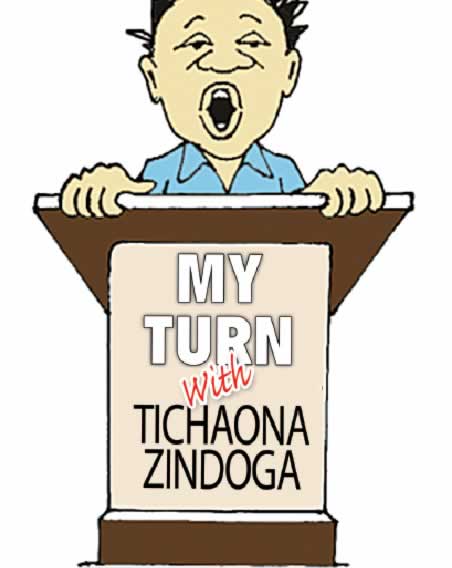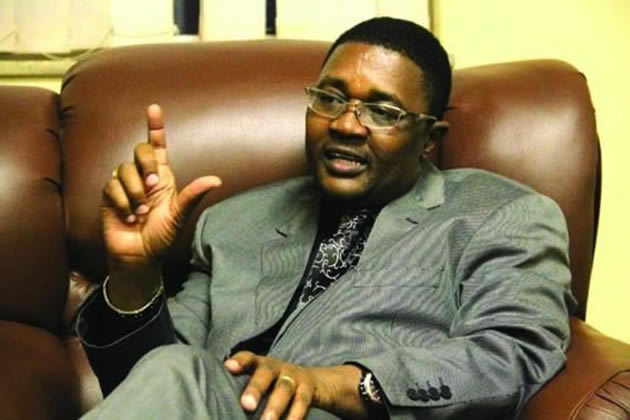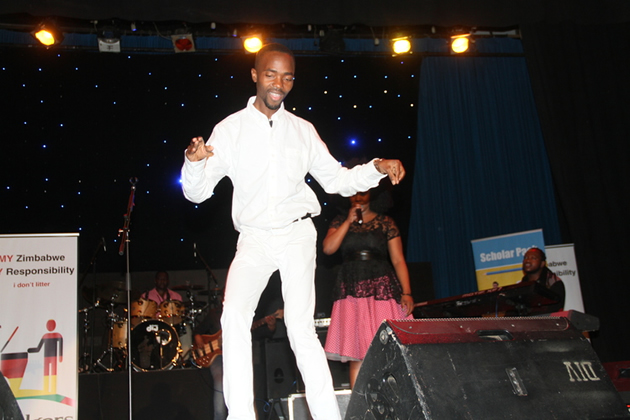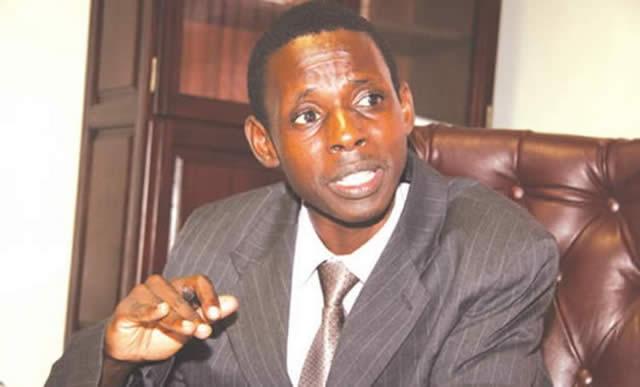Did Mzembi really meet Dark Lord Sauron?

Tourism Minister Walter Mzembi’s stated wish to bring the Fifa World Cup to Zimbabwe in 2034 has already generated a lot of heat. His vision, which some people see as hallucination, created a lingering talking point across the nation. Perhaps, as the debate begins a slow natural death, it is worth noting that Mzembi generated for us a good barometer for national sentiment.
In news and politics, it is called kite-flying, defined as “a tactic, whereby a politician, usually through the media and often by way of an intentional leak, raises an idea to gauge the general and public reaction to it. Depending on the reaction, the idea that is positively received may be implemented, or disowned and denied if unfavourable, unsympathetic or hostile.”
We are also told that, the “benefits of flying a kite is that it allows a controversial issue to be raised in a way that gives a government, usually in a country with a democratic system, ‘plausible deniability’”.
If that was the intention, Mzembi was perhaps able to gauge the national mood (although in a polarised environment like ours, not much can come out by way of constructive dialogue.).
The real nub lies in whether Mzembi actually meant what he said and if indeed he believed what Sepp Blatter purportedly told him.
First, the latter point.
Sepp Blatter, the Fifa chief, is like a politician — being generally described as Machiavellian, patronising and corrupt. I liked the article that I saw in South Africa on April 2, written by one Carlos Amato for the Times newspaper, in which he compared Blatter to Sauron, the Dark Lord of Mordor in the epic trilogy, Lord of the Rings.
At that juncture, the country’s Sports Minister Fikile Mbalula (who has become notorious for describing the national soccer team as a “bunch of losers”) was due to meet the world soccer governing body Fifa boss over his (Mbalula’s) plan for a judicial inquiry into the Safa match-fixing scandal.
South Africa had ridden into a storm after a FIFA report convicted Singaporean match-fixer Wilson Perumal — Zimbabweans will be familiar with the name and the Asiagate scandal — in arranging SA friendlies against Thailand, Bulgaria, Guatemala and Colombia and the choice of the referees.
According to SABC, South Africa won three of the games and drew the other, and those against Guatemala and Colombia were marred by a series of dubious penalties awarded to the home team.
The National Football Association president Kirsten Nematandani and five others were temporarily suspended from their positions by government, which set off a tiff with Fifa, which abhors such “interference”.
So Mbalula had to go to Zurich to level matters with Fifa. There are a number of things that Amato told us.
“The news that Fikile Mbalula is heading to Zurich this week to clear the air with Fifa made me a little nervous. It conjured an image in my mind of Frodo Baggins venturing forth into Mordor to clear the air with the Dark Lord Sauron.
“Let’s hope Mbalula comes back in one piece,” wrote Amato.
He added: “The global football body amounts to a supranational empire with creepy cultish tendencies. It is akin to the Catholic Church in its power, reach and wealth, and bears a similar allergy to external accountability.
“Fifa also favours a theocratic twist on democracy; the gist is that, once you’re elected boss, you can remain the boss until you pop your clogs if you so choose — no matter how many crimes you commit or tolerate while in office.
“This system works a treat because the bosses are elected by a tiny clique of under-bosses who benefit richly (both legally and illegally) by the continued reign of the boss in question.”
Fifa, of which Blatter is Lord, enjoys “so much fun” “in this consequence-free wonderland” and, “it’s no wonder Fifa’s cardinals threaten suspension whenever governments try to stick their noses into football.”
It may be assumed that Lord Sauron Blatter may have been in one of his more charitable moods, like a smooth devil, speaking to a minister from a little country called Zimbabwe, who also happens to have grand dreams.
If this is true, then the whole episode becomes laughable and even tragic that Mzembi may have believed what Blatter told him.
By all means, Mzembi is also a politician.
Take this particular incident during an awards ceremony of a national association of journalists, whose guest of honour was Mzembi himself.
Following the event, the minister rightly felt that winners in a couple of categories had not been fairly rewarded by way of prize money, having been offered half of what the other categories had got.
So the minister, in his keynote address, feels obliged to correct the anomaly and he calls forth the unlucky recipients, all three of them.
Parading them thus and outlining the outrage of disparity, he promises to make up the remainder from his pocket, or is it the coffers of his ministry?
Applause. Applause. Applause.
Ululation. Whistles. Ulutation.
Smiles. Smiles. Smiles.
Oh, such generosity!
That was one good day in September 2012.
But it is where the story ended.
No one among the poor expectant journalists, this writer included, may hold any grudges against Mzembi to date.
He is just a politician, even his constituents in Masvingo South, who we occasionally see here complaining that he is more visible on TV than in his home area, will tell you that.
Which brings another curious dimension. If the energetic minister indeed met the Dark Lord of Mordor, it should have equally fed into his hunger for the limelight.
He seems quite fond of attention, what with such plaudits as “one of the best ministers” coming his way and he is even given rare credit by the private press.
Buoyed by this, Mzembi seeks, and hops, from one limelight to the next.
That is from tourism indabas, to church, to album launches and anywhere else he can be visible, including taking to the dance-floor or some such hospitality opportunity.
And boy, do we not see him in those flashy suits and shoes and the gold-toothed smile!
Yet there is one thing that is rather disturbing about Mzembi, which columnist Nathaniel Manheru highlighted in his latest piece.
He cuts himself as a model “moderate” politician who is reasonable and progressive.
Thus he has verbally sparred with the likes of Saviour Kasukuwere who we should take to be a guy foul enough, especially due to his identification with a militant strain of nationalism.
The Save Conservancy has provided a battleground.
It was in April that he insinuated that Kasukuwere was not as good as his successor, Francis Nhema, leading to some wildlife sanctions against the country by the US and Kasukuwere was forced to retort about “emotional and childish politicians” who have “no business talking about anti-poaching . . . (and had to) confine himself to the carnival business, that is, if it’s not under the Ministry of Sport, Arts and Culture.”)
But Mzembi said while there was “need to de-racialise the wildlife industry . . . No need to antagonise anyone.”
Recently, he was begging us to “protect this small population of whites from disappearing altogether.”
The latter on a typically thunderous stage, the launch of his tourism policy.
Mzembi does not seem lost to the effects of such grandeur.
Perhaps Sepp Blatter, as a dark deity, realised Mzembi’s weakness for fame.








Comments